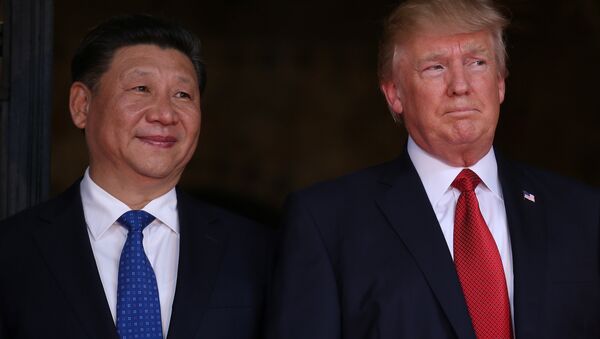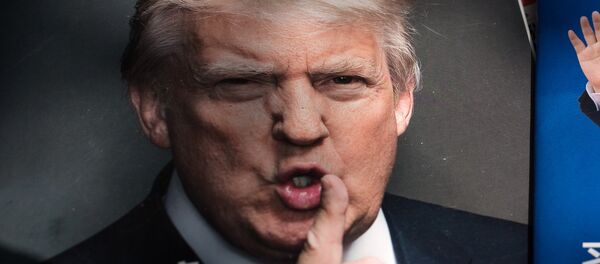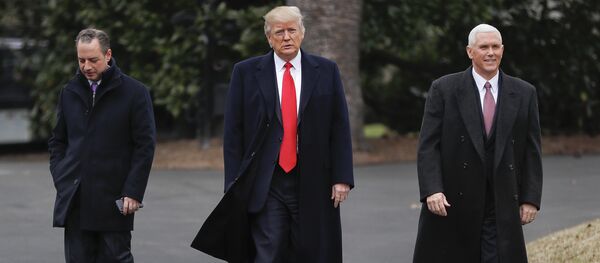Asian shares have gone up on the news of a "long and very good conversation" between US President Donald Trump and his Chinese counterpart Xi Jinping amid the ongoing trade frictions between Washington and Beijing.
Just had a long and very good conversation with President Xi Jinping of China. We talked about many subjects, with a heavy emphasis on Trade. Those discussions are moving along nicely with meetings being scheduled at the G-20 in Argentina. Also had good discussion on North Korea!
— Donald J. Trump (@realDonaldTrump) 1 ноября 2018 г.
Speaking to Sputnik, Tom McGregor, a Beijing-based political analyst and senior editor for China's national TV broadcaster CCTV, presumed that "US President Donald J. Trump [had] received messages from China's trade negotiations' team behind-the-scenes that they have delivered hints on hoping to seek areas of consensus and to find grounds for compromise."
"There was no reason for President Trump to make praiseworthy comments unless he had received a more positive message and tone from Beijing in recent days. Part of being a great negotiator is not to make bold lies and outrageous promises or bluffs, because the other side on the negotiating table can so easily call your bluff," the Beijing-based political commentator said.
McGregor opined that Trump "would not make such a tactical blunder unless he had good reason for saying both the US and China will sign a 'great deal.'"
According to the analyst, Trump's message was "more intended to calm the Chinese" amid a recent diplomatic row over Taiwan and Vice President Mike Pence's tough speech targeting Beijing in October.
On the other hand, the Chinese worried that National Security Adviser John Bolton was taking charge of US-China trade talks and were similarly displeased with Peter Navarro, director of Trade and Industrial Policy, McGregor remarked. Both politicians are very well known in the People's Republic for their hawkish stance towards Beijing.
"Navarro has no prior experience in negotiating deals," the commentator opined. "He had spent much of his professional career as a professor and even when he had written his book, 'Death by China,' he never bothered to visit China when conducting his research."
He presumed that in contrast to Navarro and Bolton, White House economic advisor Lawrence Kudlow was the man for the job: "Kudlow has much more experience at deal-making and the Chinese appear to trust talking to him more," he said.
According to McGregor, Trump's October 30 statement became "a fitting reminder to the Chinese that it's Trump, not Bolton and Navarro, who will be in charge of bilateral trade talks for the US side."
Was It Trump Who Blinked First?
In his October 24 op-ed for Channel New Asia on the ongoing trade war, McGregor suggested that though there was no need for Beijing to give up at this stage, Chinese President Xi Jinping "should make a phone call to the White House, so the two leaders can become personal friends again and make continued progress on bilateral trade talks."
Eventually, on November 1, Trump and Xi did hold a phone conversation that may pave the way for a new trade deal between Beijing and Washington. According to Bloomberg, Trump asked his administration official to start drafting the terms of a possible trade agreement.
The question then arises as to whether it was Trump who blinked first on the eve of the November midterm elections. According to McGregor that's not the case.
"The Chinese have more to lose," he said. "When negotiating, whomever has the more to lose is obligated to blink first. That's common sense. If Trump blinks first that exposes him as weak and Trump is not a weakling at the negotiating table."
Apparently therefore, speaking to Fox News on October 30, the US president threatened to further raise the stakes.
"President Trump would continue to raise tariffs until both Xi and Trump sign a win-win trade deal," the journalist suggested. "Even as both sides start talking again, Trump has promised more tariffs unless Beijing signs an agreement and Trump has to move forward on that to strengthen his leverage at the negotiating table."
Now all eyes are on the upcoming G20 summit, scheduled to be held from November 30 to December 1 in Buenos Aires, Argentina, where the US president and his Chinese counterpart are expected to proceed with the negotiations. Besides, a number of American companies are going to take part in the first China International Import Expo (CIIE) to be held from November 5-10 in Shanghai.
"Economic teams from the two countries should strengthen contact and conduct consultations on issues of mutual concern in order to reach a mutually acceptable solution to China-US economic and trade issues," Xi said on November 1.
The views and opinions expressed by the contributors do not necessarily reflect those of Sputnik.







